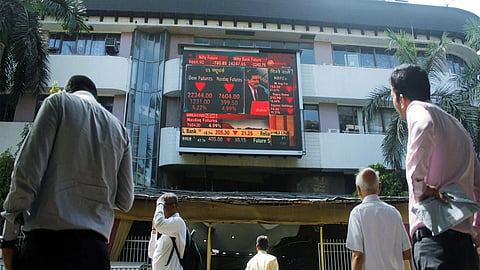

If you have integrity, nothing else matters. If you don’t have integrity, nothing else matters.
An American politician, Alan K Simpson, who represented the US state of Wyoming in the US Senate and the Congress, once made this remarkable statement.
Tuhin Kanta Pandey, the chairman of the Securities and Exchange Board of India, last week spoke on investor protection and market integrity.
He argued that market integrity means a market infrastructure resilient to shocks—technical, operational, and behavioural.
He emphasised that it meant transparent, fair and orderly transactions with no hidden costs, no preferential access and no manipulation.
The role of stockbrokers, who are the intermediaries, matters to you. Sebi regulates them by issuing rules for the game.
Their behaviour determines whether you, the investor, believe that you are in a fair game. You will stay away from the market if your trust is exploited.
There are many conflicting issues in India’s capital markets that undermine the fairness of the game.
First, the government is the biggest player and an umpire in this game. The Indian government owns over 10% of the value of shares listed on Indian stock exchanges.
That is half a trillion USD worth of listed Indian shares through public-sector ownership.
Sebi is a constituted body under an Act of Parliament, but the government makes key appointments.
The same is true of other regulators in the financial markets, like the Reserve Bank of India or the IRDAI, the Insurance Regulatory and Development Authority of India.
That is the system for a long time now. Yet, if you were to judge on the parameter of market integrity, it is the first big observation you can make.
The government owns a large number of listed companies in the energy, financial services, and other key infrastructure sectors. They are listed on stock exchanges, just like private companies, and are regulated by various watchdogs.
In 2021, Prime Minister Narendra Modi addressed the Department of Investment and Public Asset Management through a webinar. He said that when a government engages in business, it leads to losses.
“The government is bound by rules and lacks the courage to take bold business decisions. It is the government’s duty to support enterprises and businesses. However, it is not essential that it should own and run the enterprises,” he had said.
All of that sounded like the speeches made by leaders of the United States and the UK in the 80s.
President Ronald Reagan and Prime Minister Margaret Thatcher unleashed reforms to ensure that their respective governments played limited roles in business. There was hope that we might see something similar playing out in India.
We rarely get to hear those words from the Indian government again. The government has barely met any disinvestment targets and continues to support many public sector companies.
The government and regulators want to eliminate conflicts of interest between investors and intermediaries such as brokers, stock exchanges, credit rating agencies, banks, and other entities in the financial system. The government needs to lead the way.
It is important that the government start by decisively diminishing its role as a player.
That will automatically make the government a better umpire. That could result in a credible enforcement of rules and regulations.
With under 10% of the population participating in equity markets, India has a long way to go before an equity cult shapes the future of every household.
While there has been momentum over the past 10 years with the rapid expansion of last-mile connectivity driven by mobile phone penetration, merely signing people up may not be enough.
To win them over, the government needs to take steps to guarantee a fair game. It will require some significant political courage and a vision that will eventually bring prosperity to Indian households.
The story is written by Rajas Kelkar for The New Indian Express
